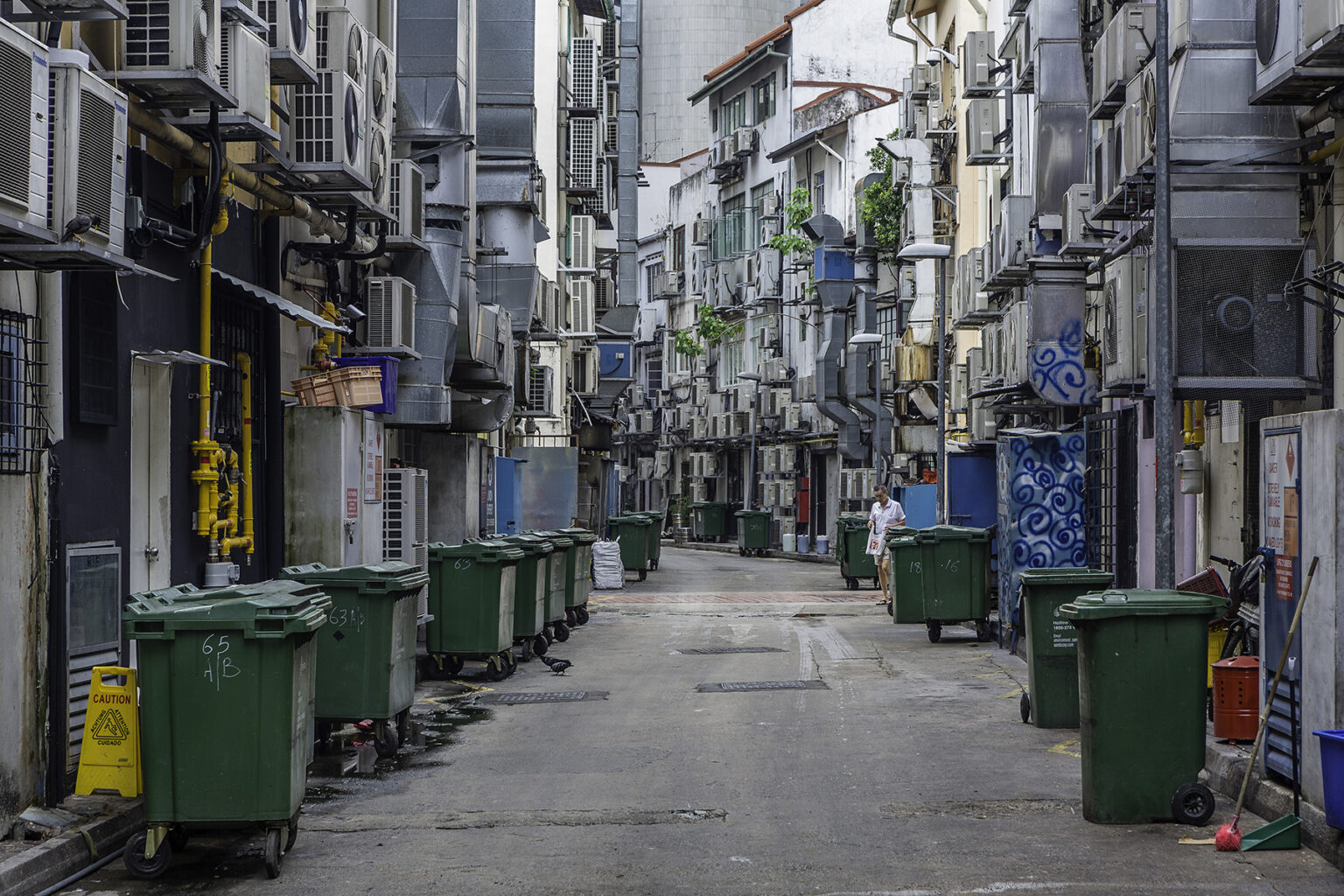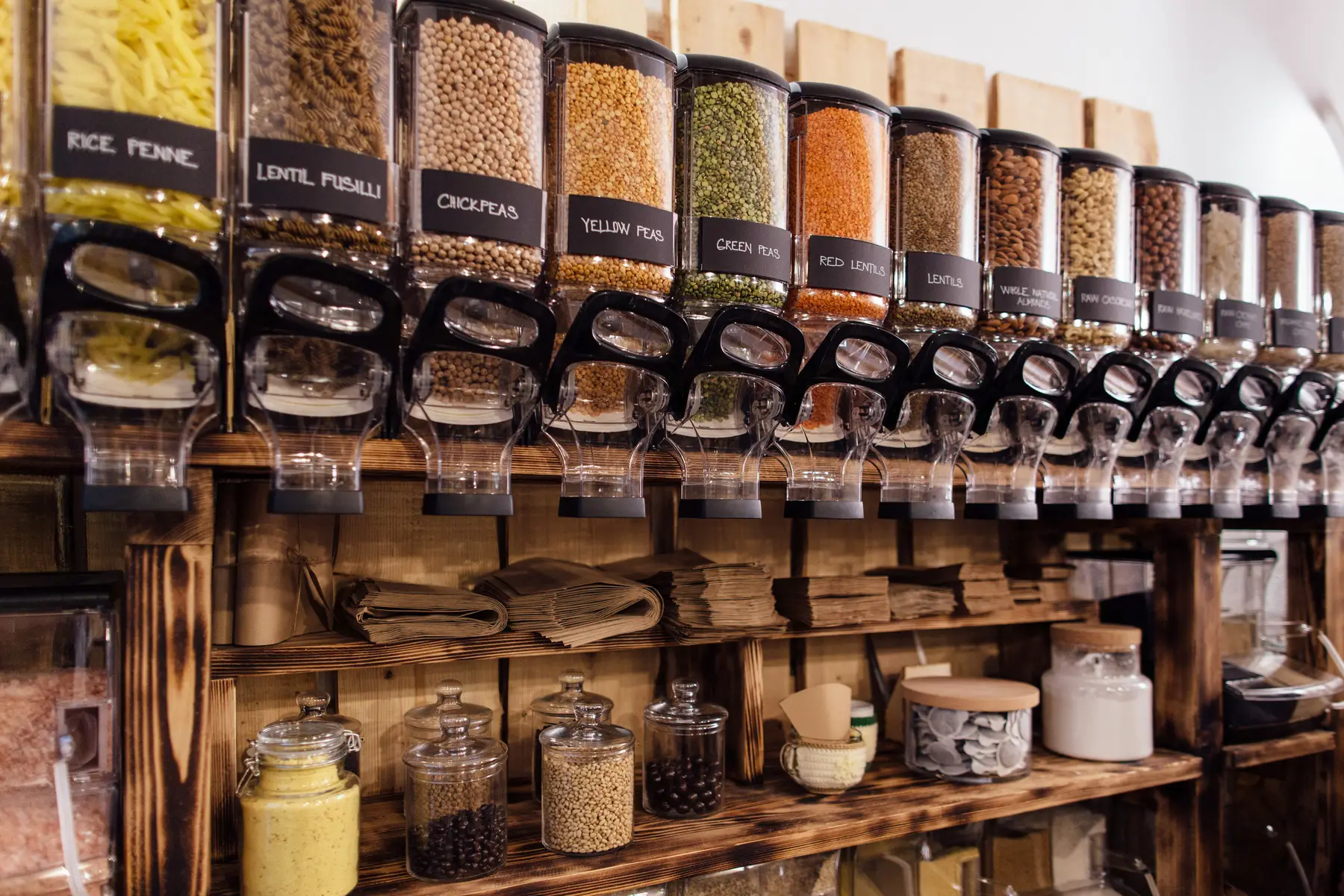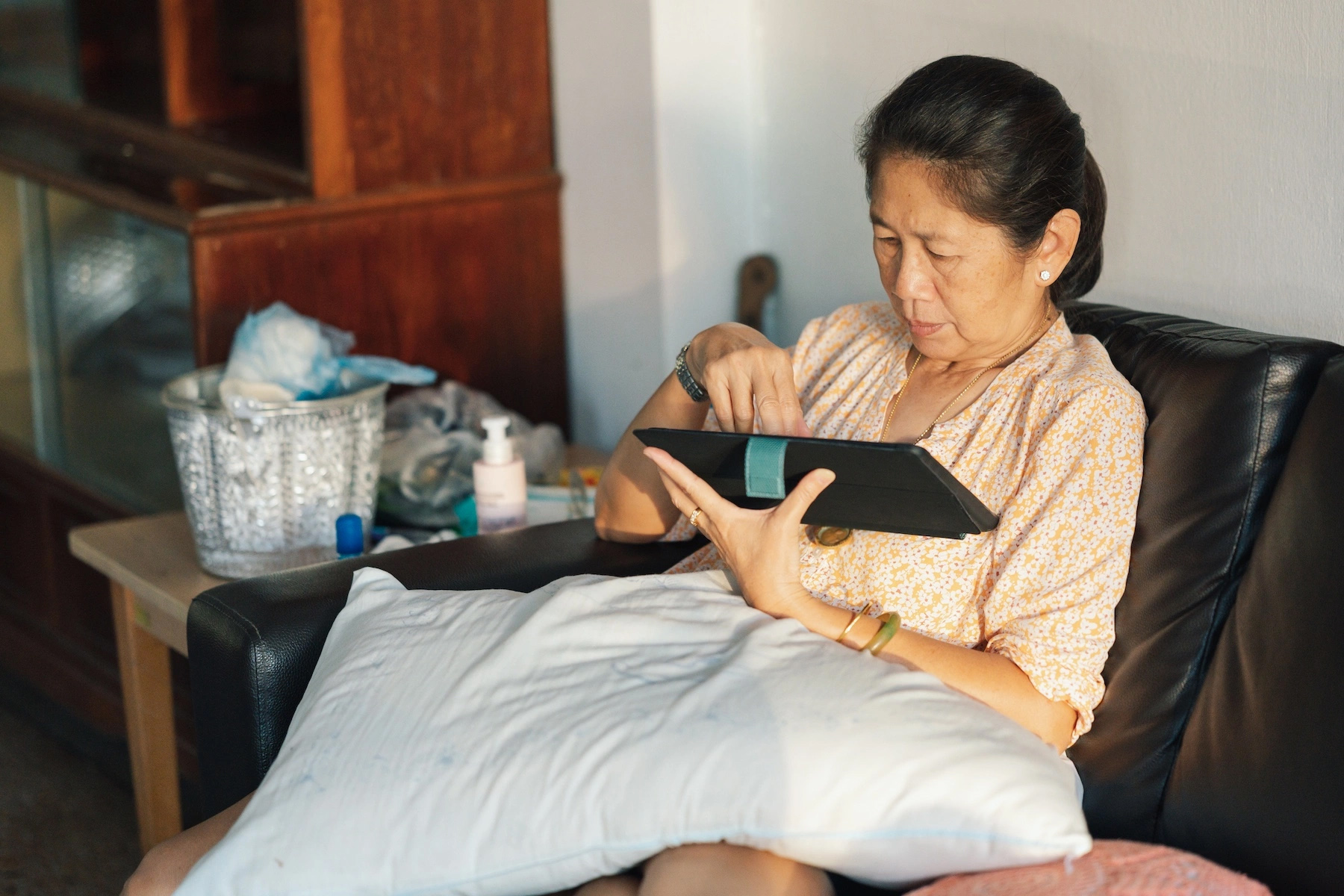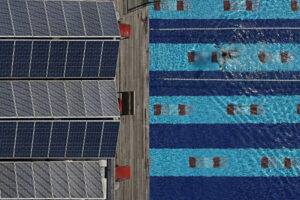Living a sustainable lifestyle is an increasing priority for people around the world. However, many will find that their home country is not as eco-conscious as they’d like. While Singapore is a world leader in many fields, it’s still lagging behind the Global North when it comes to recycling.
This should change in the future. With the government committed to a zero waste goal, the country’s patchy recycling track record should soon improve. Looking to join the government in tackling this problem?
Discover what you need to know about recycling and Singapore’s waste management system:
Singapore’s waste management system
With the environment an ever-more pressing concern, some eco-conscious countries point the finger at the industrial nations of Southeast Asia to deflect from their own lukewarm efforts to stop climate change.
While this blame game doesn’t do much to help the cause, it is true most member states of the Association of Southeast Asian Nations (ASEAN) lag behind other parts of the world and lack the infrastructure and resources to recycle effectively. However, Singapore is leading the way and has far higher recycling rates than most of its neighboring member states.
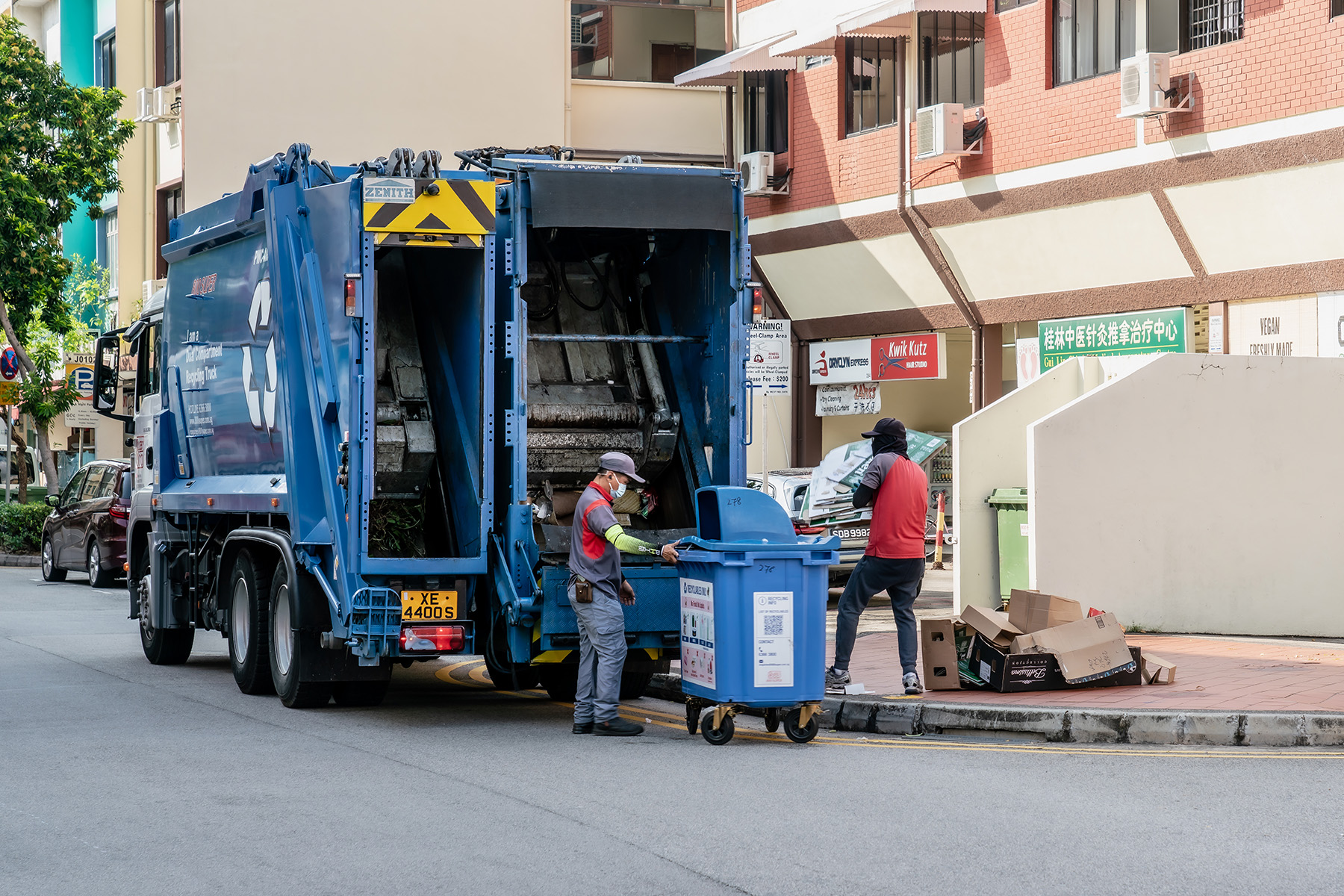
Singaporean authorities do not expect ordinary people to separate their recyclables into different garbage containers for paper, glass, and plastic. Instead, the country has just two types of household trash cans: recyclable and non-recyclable.
In theory, this should make recycling very simple. In practice, however, the implementation of recycling bins has not been smooth. Singapore’s recycling rate is just 19% in the domestic sector.
When it comes to recycling, behavior and attitudes can be major stumbling blocks. The National Environment Agency (NEA), which is responsible for Singapore’s waste management system, reports that 40% of the contents found in recycling bins cannot be recycled. Sometimes, the items have been contaminated by foods and liquids. Other times, people dump non-recyclables (e.g., styrofoam) into the recycling containers.
Recycling initiatives in Singapore
There is only one landfill in Singapore, and predictions suggest that Semakau Landfill will run out of space by 2035. With no room left for more landfills or incineration plants, the Singaporean government has committed to a zero-waste strategy to extend the landfill’s life expectancy.
The 2030 target is to reduce the garbage sent there by 30% daily. With this in mind, it has launched initiatives like the Recycle Right program to teach people how and what to recycle.
Singaporean authorities have also introduced several measures to help reduce trash and simplify recycling. In 2023, the government implemented a bag tax of at least 5 cents for disposable bags, regardless of their material. This is currently in effect for large supermarket operators with an annual turnover of more than S$100 million. Small convenience stores and similar retailers can continue to issue plastic bags without paying the fee.
The Beverage Container Return Scheme offers people a quick and easy way to recycle drink containers. All plastic bottles or metal cans carry a surcharge of 10 cents. The customer can return their empty bottle or soda can to a designated location (often found at a large supermarket) to get their surcharge back.
To make things even easier, authorities have installed Reverse Vending Machines at locations nationwide. Customers can insert their bottles and cans into one of these machines and get an instant refund.
What happens to recycled materials?
A fleet of trucks, painted blue to match the recycling bins, regularly collect recyclables as part of the Singapore waste management program. Their first stop is a Materials Recovery Facility (MRF), where workers sort the recyclables into three categories: paper, plastic, glass, and metal.
Once separated, it’s taken to recycling centers, where industrial machines will pulp or melt them down to make new products. Some materials are treated in Singapore, while others are sent to different countries to be recycled.
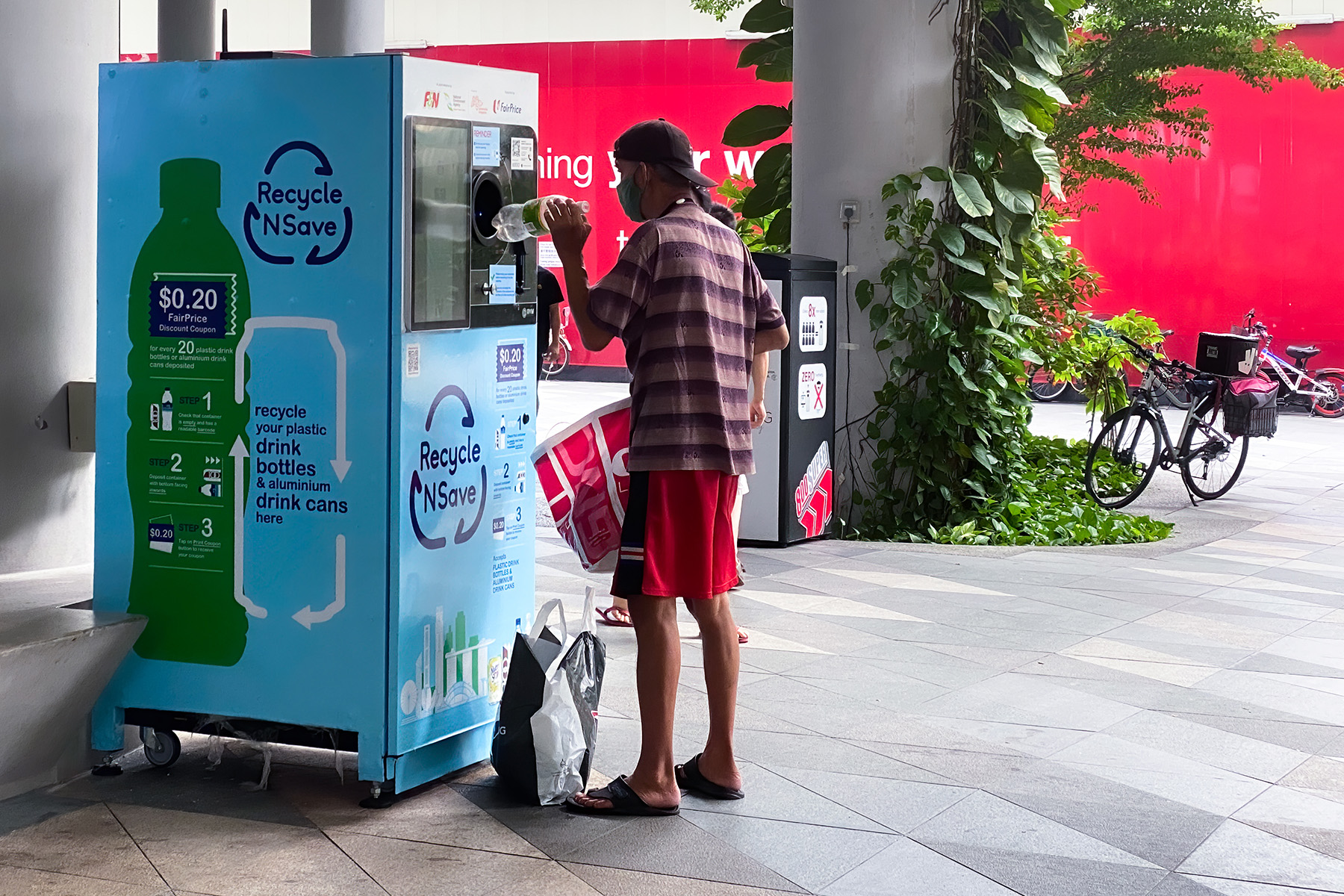
Sadly, Singapore’s exportation of recyclables lacks transparency. Internal trash management plans will always struggle due to the tiny size of this island nation; it simply does not have the space for recycling centers. This results in much of the trash being exported to countries like Malaysia and Indonesia, where it may end up incinerated.
How to recycle in Singapore?
Every housing estate or condo unit in Singapore has a blue container for recycling and a brown container for general trash. To recycle, you just have to separate your household waste into two bags: recyclable and non-recyclable. The country’s garbage collectors empty the trash cans on a daily basis, and there is no limit on how much a single household can throw out.
The Recycle Right program has published a nifty guide to household recycling. You can also use its Recycle Search Engine to check whether a particular item can be recycled.
Paper recycling in Singapore
The paper recycling process is simple. Industrial machines shred, pulp, and reform the paper waste, turning it into new sheets of paper.
Items that can be recycled include cardboard boxes, egg cartons, envelopes and flyers, toilet paper rolls, newspapers, magazines, and receipts. You can also recycle books, although the government recommends donating them instead. To recycle drink cartons, you should rinse them before putting them in the blue container.
Do not place disposable food containers (e.g., pizza boxes) into your blue garbage can. The food can contaminate the cardboard, making it unsuitable for recycling. You should throw these out with the general trash.
How to recycle plastics?
Recycling plastic in Singapore is a complex process. It involves crushing the plastic items, melting them, and using an extrusion system to turn them into strands. Finally, machines cut these strands into pellets so they can be reused.
You can recycle used ziplock bags, plastic bags, bubble wrap, and plastic containers, such as beverage bottles, shampoo bottles, or detergent bottles (be sure to wash them first!). You cannot recycle old credit cards, toys, or melamine products. Rinse any pieces of plastic that have held food or liquids. If the plastic item is greasy and you can’t wash it out, put it into your general trash.
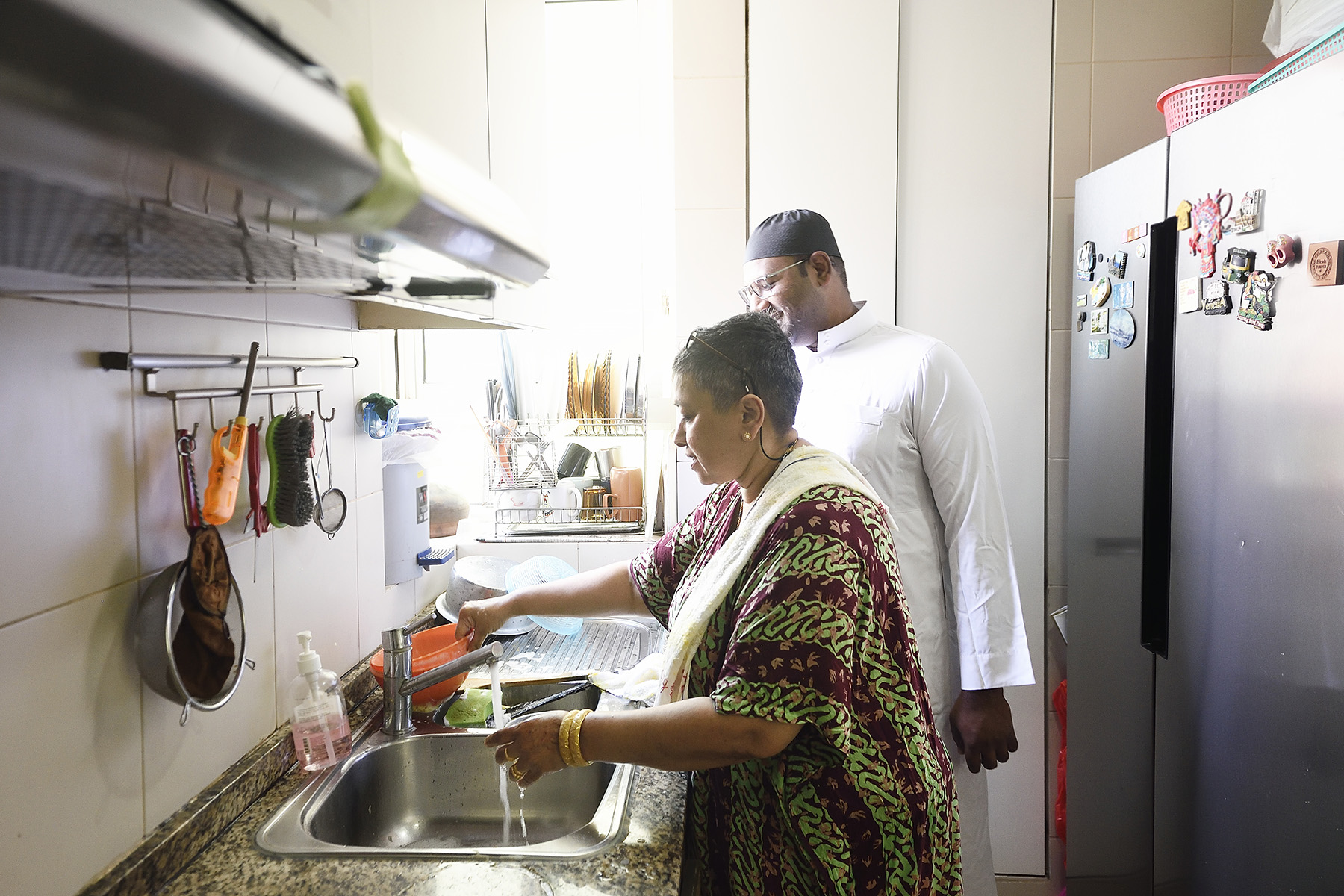
Not all plastics can be recycled. Look for your item’s recycling symbol (a green triangle with a number inside). In Singapore, items with codes 3 and 6 cannot be recycled.
Recycling plastic downgrades its quality. Sadly, this means that it can usually only be recycled two or three times before it goes to the landfill. There are several easy lifestyle changes you can make to reduce your plastic waste. For example, you can:
- Take a tote bag to the supermarket
- Use metal or paper drinking straws
- Replace Tupperware with glass or metal containers
- Avoid buying six-packs that have plastic wrapping; instead, buy larger bottles
How to recycle glass?
At the recycling center, glass items are sorted by color. The industrial machines then crush, melt, and reform them. Glass is endlessly recyclable, making it a very eco-friendly choice.
You can put glass bottles and containers into your blue garbage can. Just make sure to rinse them first. You cannot recycle oven-safe food containers, Pyrex glassware, mirrors, or tempered glass. Eyeglasses and lightbulbs should be treated as electronic waste rather than glass.
Recycling metals in Singapore
Metals are sorted at the waste management center, then compacted, melted, and reused. Metal items you can put in your blue bin include food and beverage cans, cookie tins, paint cans, metal containers, cutlery, and steel wool. Be sure to rinse anything that has held food or liquids. Paint cans can have dried paint stuck to them but should not have liquid paint inside.
You must throw heavily rusted cans and dirty, food-contaminated aluminum foil into general trash. Do not put metal electronic goods such as laptops, batteries, and cables into your recycling container. Instead, you’ll have to take them to an e-waste collection point for recycling.
Recycling clothes and textiles
Singapore’s recycling programs don’t cover clothing and textiles; only 2% gets recycled every year. There are a number of things you can do to help improve this statistic.
If your unwanted clothes are still in good condition, you can donate them to a thrift store or charity collection point. Some may be sold second-hand in Singapore, while others are donated to people in need, both at home and abroad.
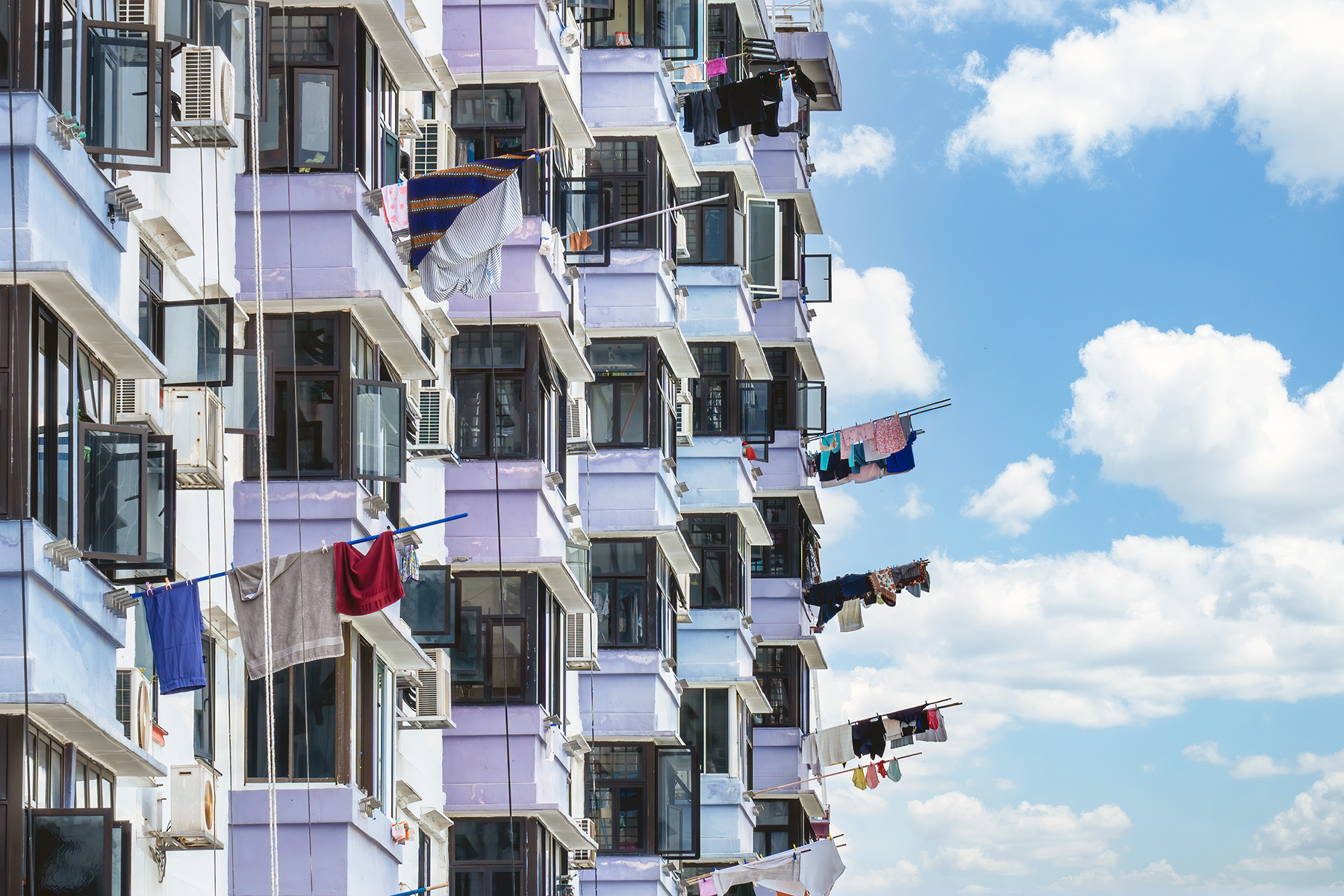
You can drop clothes that are not suitable for donation at a collection point. Two organizations, Greensquare and Cloop, have textile collection points all around the city. The latter has two different types of dumpsters: the white collection bins are for clothes and accessories that are still in good condition, and the yellow bins are for textile recycling.
Other household items
Batteries, computers and accessories, household appliances, lightbulbs, and eyeglasses are some of the most common items in Singapore’s e-waste initiative. To dispose of them, you’ll need to go to a collection point. There are dozens of these around the island, but check before you go, as some will only accept particular types of e-waste.
Recycling tips in Singapore
Here are some tips to make recycling in Singapore more straightforward:
- Set up a recycling container prominently in your home. If you live with family, make sure your family members know about the recycling bin. The Recycle Right campaign also has child-friendly resources to encourage kids to join in.
- Give your recyclables a quick rinse before putting them in the recycling bin
- Use the government’s Recycle Search Engine to see which items you can or cannot recycle
- Collect old glass bottles separately from the rest of your recyclables, and take them to a Reverse Vending Machine for your refund
Some companies have also introduced their own waste reduction projects to encourage people to play a more active part in Singapore’s waste management system. These initiatives come with apps that you can use to help cut down on trash.
For example, 800 Super allows users to place food waste and recyclables in special garbage cans. The more you deposit in one of these locations, the more points you’ll get. In time, you can exchange your points for vouchers and special deals. ALBA’s Step-Up app offers similar rewards for diligent recyclers.
How to compost in Singapore?
Food waste
Kitchen scraps are a major problem in Singapore, with 744 million kilograms of food waste generated in 2019. At the same time, it also has an issue with food security. As a small island nation, Singapore is incapable of producing enough food for its population and currently imports over 90% of its food supply.
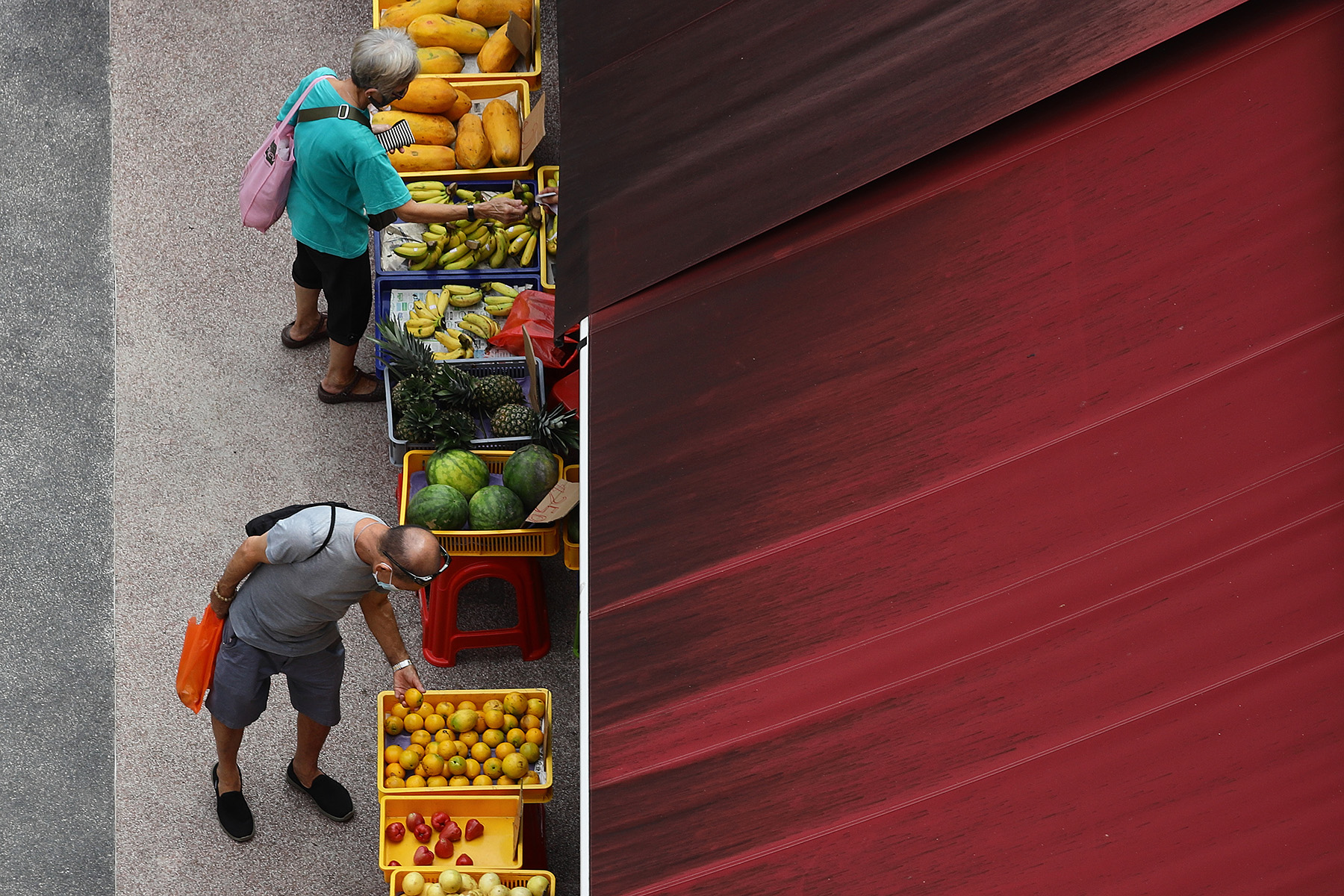
Most of the government’s food waste initiatives focus on restaurants and retailers rather than the general public. The Love Your Food guide provides tips for preventing food waste at home, along with tasty recipes designed to use up leftovers.
Yard waste
The vast majority of Singaporeans live in an apartment without a yard. However, there are almost 2,000 community gardens around the country, and the Community in Bloom initiative encourages residents to take a hands-on approach to gardening.
The National Parks Service has published a guide to DIY composting for these collective gardens. If you have compostable material through food waste or potted plants at home, you can contact your local public garden to see how you can contribute to their composting efforts.
Garbage collection in Singapore
The National Environment Agency is in charge of Singapore’s waste management system. It divides the country into three sectors, with a different public garbage collector responsible for each. Every seven or eight years, a tendering process takes place for these general trash collection contracts.
Garbage collectors empty trash cans every day. As all residents use the same-size bins, there is no need to buy any special bags or tags. Instead, standard trash bags from any supermarket are acceptable.
Trash collection costs around S$10 for residents in apartments and about S$35 for those who live in houses.
When is your garbage collected in Singapore?
To see when or what time your trash is collected, you should check which sector you live in and which public garbage collection company has the contract.
Penalties for illegal trash dumping
There are currently no penalties for not recycling (2023). However, Singapore does have stringent anti-litter measures, with a fine of S$300 for a first offense. Sentencing laws dictate that repeat offenders must do community service, pick up litter, and clean the streets.
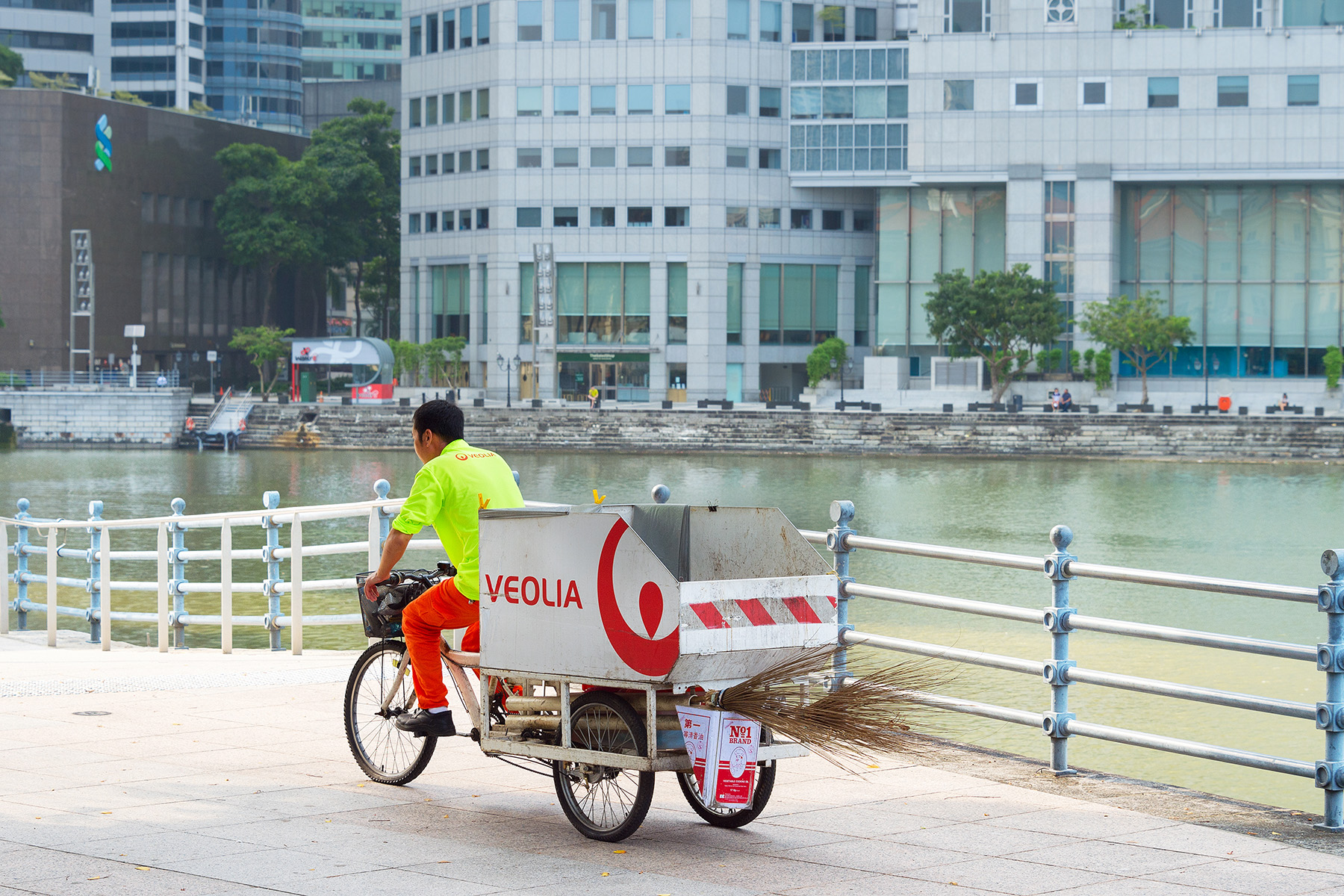
In 2023, the government expanded its anti-litter laws to cover so-called high-rise littering. This is when people throw garbage out of the windows of high-rise apartment blocks. The new bill presumes the suspected tenant or flat owner is guilty unless they can prove their innocence within 14 days.
The NEA has a confidential hotline for cases of illegal trash dumping. The maximum fine for a first-time illicit dumper is S$50,000, while repeat offenders may need to pay twice that amount.
Useful resources
- Clean & Green Singapore – official government resource for recycling in Singapore
- National Environment Agency – government agency responsible for waste management in Singapore
- Recycle Right – tips on what items to recycle in Singapore
- Towards Zero Waste – more information on the government’s 2023 zero waste plans
